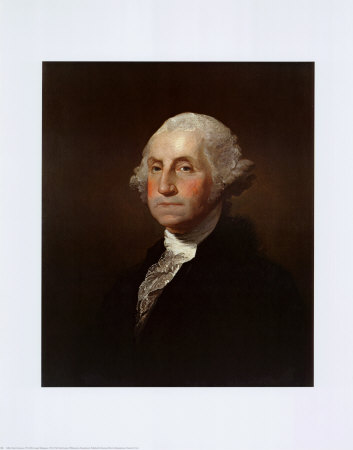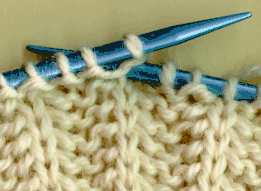
the neutral
zone
vol.6 issue 4
06.07
News and Updates
News from the Front
TVMA Newsletter excerpts
Thank You
Blog World
Legal Language
Mediation Toolbox
Debunking Mediation Myths
Archives
2006
December
2005
2004

Quid Novi?
News and Updates:
CMC DATES:
June 20, Executive Committee, 12-1pm, CMC Gay St Office conference room. Brown-bag lunch, drinks provided.August 15, Executive Committee, 12-1pm, CMC Gay St Office conference room. Brown-bag lunch, drinks provided.
August 23, Board Meeting, 6-8, time and place TBA.
Dependency Mediation Training
We are planning a mediator "upgrade" training for our volunteer mediators and for any Rule 31 family mediator who would like to participate as a CMC volunteer mediator. Our purpose is to prepare for what one of the most challenging kinds of mediation: dependency mediation. CMC has the opportunity to mediate cases in Knox County Juvenile Court where children have been removed from their family because of abuse or neglect, to resolve conflict around disposition and permanency of the child's placement. We appreciate DCS' and the Court's confidence in CMC's ability to provide sensitive intake and screening of parties, a safe, confidential and neutral space, and, AS ALWAYS, highly skilled and experienced co-mediators.
The training will occur in June. Our training dates will depend on how many mediators would like this 4 hr training. Please call or email if you are interested.
TVMA DATES
TVMA'S regular monthly meetings will continue BEGINNING IN SEPTEMBER on the 3rd Tuesday of each month at TVUUC, 6:30pm social time, Meeting time, 7-8pm, Program TBA,, Click here for directions to the meeting. See more TVMA news below!
KNOXVILLE BAR ASSOCIATION DATES
KBA ADR Section:
Meetings will be held at the law office of Butler, Vines & Babb (2701 Kingston Pike) from 5:30 - 6:30 p.m. The programs have each been approved for one hour of general CLE credit (unless otherwise noted). KBA Members not wishing to receive CLE credit may attend the program at no charge (handout materials not included). A reservation is required in advance of the program. $5 additional the day of the program. The cost is $20 for KBA members & $30 for non-KBA members. The cost includes one hour of CLE credit and the handout materials.September 10, 2007 (Note Date Change)
Mediation of Medicare/Subrogation/Liens/Nursing Home Claims
Speaker: Harry P. Ogden, Baker, Donelson, Bearman, Caldwell & Berkowitz, P.C.
November 5, 2007 (Note date change)
Ethical Considerations in Mediation
Speaker: Howard H. Vogel, O’Neil, Parker & Williamson
*Approved for 1 hour of Ethics CLE Credit

ashville trainings:
TBA mediation CLE/CME offerings:
June 15, 8:30-10:00am (during the annual TBA convention held in Nashville at the Sheraton Music City Hotel), Preparing for the successful mediation
Join Jackie Dixon, President of the Tennessee Lawyers’ Association for Women, along with an expert panel of practitioners who have considerable experience in both civil and family law mediation for a comprehensive discussion on mediation.
This program will cover the nuts and bolts of how to prepare your case for mediation. Examples from several substantive areas of law will be presented. This presentation will be helpful to any attorney who is representing a party in mediation.
Tennessee Association of Professional Mediators (TAPM)
Lipscomb University Institute for Conflict Management
June 7 & 8, June 28 & 29 and July 19 & 20.
Mediating the Complex Case, Rule 31 basic Civil training, offered in three 2-day blocks.
“Out beyond ideas of wrong doing and right doing, there is a field. I’ll meet you there. When the soul lies down in the grass, the world is too full to talk about. Ideas, language, even the phrase ‘each other’ doesn’t make sense anymore.”
--Rumi
Tennessee Committee on Community Mediation (TCCM)

See our list of Coalition Members HERE.
The mission of TCMA is simple: Increase mediation awareness and educate our public servants, bench, bar, and general public about the many opportunities which exist to mediate.Our coalition will be hosting Mediation Day the 3rd Thursday in October, 2007, with events around the state. We will gather in Nashville for a celebration filled with mediation training, presentations on initiatives around the state, and an award ceremony. Stay tuned for more information...
Association for Conflict Resolution (ACR):
Unauthorized Practice of Law (UPL)/ Authorized Practice of Mediation (APM)
In January 2000, the Board of the Society of Professional in Dispute Resolution (SPIDR) authorized the formation of a Task Force, made up of conflict resolution practitioners from a variety of backgrounds, to explore the unauthorized practice of law (UPL) issue in relation to the conflict resolution field, and to mediation, arbitration, and relevant hybrid processes. Anticipating the merger that has since resulted in the formation of ACR, representatives from the other two founding organizations (AFM and CREnet) served on the Task Force from its inception. In 2002, this Task Force produced a draft report for the ACR Board’s consideration.
In June 2004, after careful consideration, ACR’s Board of Directors adopted a report that frames the UPL issue in terms of the appropriate practice of mediation, not in terms of the authorized or unauthorized practice of law. Thus, the focus of this report is the authorized practice of mediation (APM).An excerpt:
"At this point in the development of the field of mediation, certain activities occupy the “rub areas” between the practices of mediation and law, and between the practice of mediation and other forms of ADR (such as case evaluation or arbitration) Generally, these consist of the instances in mediation practice most likely to challenge the boundaries between mediation and the practice of another discipline. The “rub areas” require more difficult decision-making by a mediator, based on careful consideration of the fundamental values of mediation in order to preserve the integrity of the process.
"The intensely contextual nature of these ["rub area"] activities influences perspectives on whether they are acceptable or unacceptable mediation practice. Such activities include:
proposing options for parties’ consideration;
recommending a specific course of action;
providing any personal or professional evaluation of the strengths and weaknesses of the case, either directly or implicitly, even when it is not intended to coerce the parties or direct a resolution.
"These are examples of practices still under discussion in the field. Opinions vary according to geographical custom, type of case, area of practice, institutional norms, qualifications of the mediator and the expressed desires of fully informed parties.
|
|
by Marsha Hupfel, Outgoing President
|
|
|
|
Blog World
|
Our staff email addresses:Jackie Kittrell: jkittrell@2mediate.org
Sharon Upshaw: supshaw@2mediate.org
Jen Comiskey: jcomiskey@2mediate.orgOur contact info:
912 South Gay Street
Suite L-300
Knoxville, TN 37902
(865) 594-1879, voice
(865) 594-1890, faxJuvenile Annex office
(865) 215-6570, voice
(865) 215-6564, faxWebsite: www.2mediate.org
 Legal
Language
Legal
Language
By Don K. Ferguson
(CMC volunteer mediator in Knox County General Sessions Court and author of the "Grammar Gremlins" column that appears in The Knoxville News-Sentinel every Sunday.)--------------------------------------------------------------
pursuant to
"Because the phrase means so many things, it is rarely
--if ever--useful. Lawyers are nearly the only ones who use the phrase, and they often use it imprecisely." -- A Dictionary of Modern Legal Usage.
Its various meanings are:(1) in accordance with;(2) under;(3) as authorized by; or (4)in carrying out.
|
M e d i a t i o n
T o o l b o x
National Institute for Advanced Conflict Resolution (NIACR) was founded for the purpose of advancing the field of conflict resolution in the United States, and promoting a greater understanding of the role of mediation in resolving disputes. This website was created not only to provide an online resource for practicing mediators, but also to make available to the general public information about issues pertaining to mediation and conflict resolution.
Founded in 1985, the Mediation Training Institute International (MTI)
is the world’s leading provider of training and certification in the core competencies for managing workplace conflict. Here is their online toolbox. MTI is owned and operated by Dana Mediation Institute, Inc.
The Administrative Office of the Courts quarterly ADR newsletter, online in a pdf file.
Three online tools for separating parents to work on visitation or co-parenting times
www.jointparents.com
www.ourfamilywizard.com
www.sharekids.com

From a website called Mindtools, a review of Edward de Bono's excellent problem-solving process, the Six Thinking Hats. If you purchase the book using this link, CMC will automatically receive part of the price as a donation to its library fund.
Center for Mediation in Law (www.mediationinlaw.org)
The Center is a non-profit educational institute dedicated to integrating principles of mediation into the practice of law. We have been developing our Understanding-Based Model of Mediation since 1981 and conducting introductory and advanced training programs in this country and abroad. More than 2,500 lawyers, judges and other professionals have been trained in this approach in the United States, Canada, Austria, Germany, Israel and Switzerland. Center trainers have also taught this model at Harvard's Program of Instruction for Lawyers, the American Bar Association and the World Intellectual Property Organization.
Thanks to the NIACR for this article!
by Steven H. Kruis, Esq.Debunking Mediation Myths
Myth No. 1: All Mediations are the same -- One Size Fits All.
There are at least three types of mediation models: the facilitative, the evaluative, and the hybrid. Under the facilitative model, the purist mediator works toward finding creative solutions that meet the interests and needs of both sides, ascribing relatively little importance to the legal rights of the parties. The best cases for the facilitative model are those more about hurt feelings and anger than money. The mediator is a facilitator, not an evaluator. The purist mediator would say most of his/her disputes are not about money, and (s)he expresses no opinion about either party's position in the case. Under the evaluative model - on the other end of the spectrum - the mediator analyzes the case and tells the parties what (s)he thinks it is worth. The mediator attempts to convince both counsel and their clients that his/her evaluation is right. The process is solely about money; the emotional aspect of the case is largely irrelevant. The mediator may not even talk to the parties. This model closely resembles a judicial settlement conference, and the neutral is sometimes referred to as a "muscle mediator".
Under the hybrid model, in the middle of the spectrum, the mediator, a skilled facilitator with a legal background, shares neutral impressions with the parties to help them evaluate their case. Instead of assigning a value to the case and prevailing upon the two sides to agree with the mediator, the hybrid model mediator attempts to get the two parties to agree with each other regarding the settlement of the case. The hybrid model is usually most conducive to settling the types of disputes civil litigators handle. There is emotion is virtually all litigation, whether it involves personal injury, real property, employment, or business matters. Emotions must be addressed before the parties can get down to the important business of negotiating a settlement. If ignored, the emotional baggage hinders settlement. However, civil litigation is often ultimately about the dollars, which will change hands following a settlement.
Not all mediators follow the same model, so not all mediations are the same. Mediators are stylistically different and at different points along the spectrum. In selecting the appropriate model (and mediator), the litigator should consider the model that is best for the lawyer and client in light of the personalities involved and subject matter of the dispute. The mediator will ordinarily provide references to lawyers who have used the mediator and can tell you about his/her style.
Myth No. 2: Certain Types of Cases Cannot Be Mediated.
All types of cases can be mediated. The subject matter and amount in controversy are generally irrelevant. The real question is one of timing - is the case ripe for mediation? Do you have enough information to negotiate intelligently? For example, in a personal injury case, the parties need to know enough to address liability, causation, and damages. In a real estate non-disclosure case, the parties should know about proposed methods and costs of repair, i.e., damages, in addition to facts establishing and refuting liability.
Myth No. 3: Ex Parte Communication before the Mediation Is Improper.
The ex parte rules that apply in judicial proceedings and arbitration do not apply in mediation, because the mediator cannot impose a decision on the parties. Rather, the mediator assists the parties in resolving the dispute. The more information the mediator obtains, the greater the likelihood of settlement. After the joint session, the mediator will meet privately with each side in "caucuses" that are, essentially, ex parte communications. Caucusing can begin before the mediation, and attorneys should feel comfortable calling a prospective mediator to determine if (s)he is appropriate to mediate the case.
Myth No. 4: When the Case Has Not Settled at the Conclusion of the Mediation Session, the Parties Proceed to Litigation.
Most cases that go to mediation will settle. Some of those cases, however, may require additional effort after the formal mediation session has ended. Mediation is an ongoing process. Although progress towards settlement may come to a standstill on a particular day, future settlement is still possible. If the potential for settlement exists, the determined mediator will continue his/her efforts. Evidence Code section 1125 recognizes the reality that some cases need the extra effort after mediation, and makes post-mediation discussions inadmissible. A good mediator is the last one to give up on settlement. His or her tenacity will result in an agreement most of the time.
Biography
Steven H. Kruis graduated with honors from the University of Notre Dame in 1977. Selected as a 1978-79 Rotary International Scholar, he studied in London, England, and subsequently received his Juris Doctor degree from the Notre Dame Law School in 1980. Since 1997, he has been affiliated with Markus ♦ Kruis ♦ Mediation and serves as a full-time neutral mediating real property, employment, injury, and other disputes throughout Southern California.
Author's Website: http://www.agreement.com


 VMA
May Newsletter
VMA
May Newsletter



